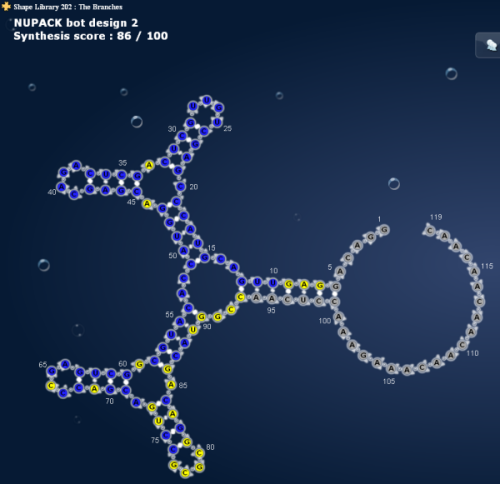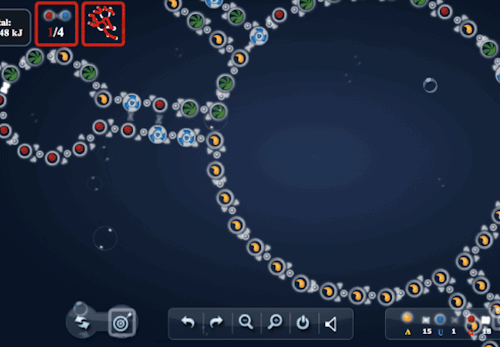amolecularmatter: Played By Humans, Scored By Nature Meet eteRNA, your new internet addiction. Not o
amolecularmatter:Played By Humans, Scored By NatureMeet eteRNA, your new internet addiction. Not only is it a super-fun way to procrastinate on that thing you should be doing, it also helps to advance biology’s understanding of RNA and its synthesis - in a big way. Scientists from Stanford University and Carnegie Mellon University have developed eteRNA as a successor to Foldit, a popular internet-based game that proved the pattern-matching skills of amateurs could outperform some of the best protein-folding algorithms designed by scientists. They’re hedging their bets that eteRNA will work similarly - and are even funding the real-life synthesis of the weekly winner’s RNA molecule to see if it really does fold the same way the game predicts it should. The scientists hope to tap the internet’s ability to harness what is described as “collective intelligence,” the collaborative potential of hundreds or thousands of human minds linked together. Using games to harvest participation from amateurs exploits a resource which the social scientist Clay Shirky recently described as the “cognitive surplus” - the idea that together, as a collection of amateurs, we internet people make a very good algorithm because we react to information presented in a game, get better at it as we go along, and make informed decisions based on what has or hasn’t worked for us in the past. “We’re the leading edge in asking nonexperts to do really complicated things online,” says Dr. Treuille, an assistant professor of computer science at Carnegie Mellon and one of the original masterminds behind the game. “RNA are beautiful molecules. They are very simple and they self-assemble into complex shapes. From the scientific side, there is an RNA revolution going on. The complexity of life may be due to RNA signaling.”“This [project] is like putting a molecular chess game in people’s hands at a massive level,” he continues. “I think of this as opening up science. I think we are democratizing science.”And, so far, the democratisation is working. Although the creators warn that game players may start to see legal and ethical issues in gameplay down the road, for now, the collective intelligence is trumping professionally designed algorithms. Significantly, not only do humans outperform their computer adversaries, but the human strategies developed during the course of the game are significantly more flexible and adaptable than those of the algorithms they’re pitted against.So what are you waiting for? This isn’t procrastination, it’s being a part of a collective intelligence that’s smart enough to take down science’s finest algorithms. Click here (you know you want to) to get synthesising! -- source link
Tumblr Blog : amolecularmatter-blog.tumblr.com
#science#engineering#molecular biology#technology#must do



